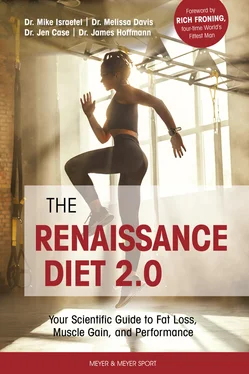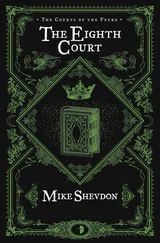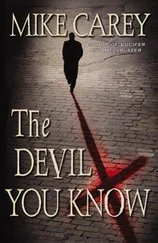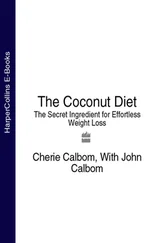If an average person is carrying water bottles around and timing and measuring their intake precisely (not to mention using the bathroom hourly), they are not making the most of their time and focus. If you get your calories, macros, and timing in order and drink when you are thirsty, meticulously measuring water intake will not get you any additional body composition results. For those competing in sport or training under circumstances where a great deal of water is lost via sweat, thinking a bit more about hydration is warranted. By the time you feel thirsty, you are already slightly dehydrated; when water will be lost across a long, intense training session or during competition in hot weather, for example, drinking when thirsty might leave you increasingly behind in your hydration. In lab settings, testing urinary specific gravity can give a precise measure of hydration, but most people do not have a refractometer lying around. For the average person who happens to train in a way that results in substantial water loss through sweat, following are some options for the assessment and maintenance of euhydration:
Consume 1.5 ml of water per calorie eaten per day
Again, this is very specific and probably only necessary if one needs to be prepared to be perfectly hydrated for performance during hard training or competition. If you take in 2,000 calories per day, this recommendation means you would consume 3,000 ml (3 liters) of water per day. To put this in perspective for our readers in the United States, this means you should get about 5 oz of fluids per 100 daily calories. This is an average recommendation for individuals training hard under isocaloric conditions. If you are training hard while cutting calories, or in extremely hot environments, you might need more fluids. Using bodyweight and urine color assessments can help dial in these values.
When you are euhydrated, your urine should be light yellow like lemonade. Certain circumstances can make urine color a poor indicator of hydration such as rapid intake of large amounts of fluid or alcohol consumption. The best way to use urine color to assess hydration is to consider the average color over multiple hours and days. If you consistently see dark yellow urine, you need to drink more fluids daily. In contrast, if your urine is consistently clear, you are likely overhydrating.
If you track your bodyweight regularly and are in an isocaloric phase, bodyweight can be an especially helpful tool in assessing hydration levels. Most daily fluctuations in bodyweight are from fluid balance. If you undertake a very high volume of training during any particular day, you can assess water loss by weighing yourself before and after that training and rehydrate accordingly.
Determining Degree of Dehydration
Dehydration levels can be classified by percentage of bodyweight change from fluid loss. Reductions in performance and increases in health risks are seen as dehydration gets more extreme.
1-2% = Mild dehydrations
2-4% = Moderate dehydration
5-6% = Severe dehydration
7%+ = Extremely severe dehydration
Following are the symptoms and effects of these dehydration classifications:
Mild Dehydration
•Thirst
•Difficulty focusing
•Mild fatigue
•Small reductions in strength and athletic performance
Moderate Dehydration
•Further difficulty focusing
•Further reductions in strength and athletic performance
•Increased risk of overheating
•Decreased sweat volume
Severe Dehydration
•Cramping
•Increased respiratory rate
•Decreased cardiac output
•Chills
•Rapid pulse
•Possible heat exhaustion (weakness, nausea, dizziness)
Extremely Severe Dehydration
•Dizziness
•Muscle spasms
•Poor balance
•Fainting
•Hallucinations
•Possible heat stroke
•Extreme body temperature
•Possible loss of consciousness
•Possible shock and coma
•Possible death
Though you may have heard of weight-class athletes in MMA and other sports pushing the limits of water weight cuts, we limit our weight cut recommendations to losses of 5% total bodyweight or less due to the dangers of severe dehydration. Above 10% bodyweight loss from water death becomes a realistic risk. For those of you dieting for other sports or for more practical reasons, techniques and supplements used to cut water weight should generally be avoided.
Chapter 15will go over safe practices for water weight cutting up to 5% bodyweight.
Hydration Protocols
Pre-Training Hydration
Some degree of dehydration during intense activity is nearly inevitable because the average person can sweat out roughly double the amount of fluid that the gastrointestinal tract can absorb per hour. If you show up to hard training or competition a little dehydrated, you are already behind. Before training or competition, make sure you are taking in regular fluids and monitoring your weight and urine color to stay well hydrated. When daily bodyweight varies during fat-loss or muscle-gain phases, urine color becomes your best tool to monitor pre-training hydration.
Around 5 fl. oz. per 20 minutes of hard exertion is a baseline recommendation for hydration during training or competition. This can be lower in cooler and less difficult training scenarios and higher in hotter and more strenuous ones. Consuming electrolytes with this fluid is highly recommended. This can be done using sports drinks or by adding electrolyte tablets or powders to water.
As we mentioned earlier, your GI tract does not absorb all the fluid you drink; about one-third is lost in urine. This means that if you lose 2 lb. of sweat during your training session, you actually need to consume 3 lb. of fluids after training to fully rehydrate. Rehydration should occur somewhat gradually for comfort and best fluid absorption. A general guideline is about 8 oz of fluid every 15 minutes after training until the required total is met. If the fluid has electrolytes or is consumed with food, euhydration will be reached more quickly as electrolytes facilitate water absorption. Drinking large amounts of water without electrolytes, especially over a short period of time, can cause a dangerous electrolyte deficiency called hyponatremia.
Конец ознакомительного фрагмента.
Текст предоставлен ООО «ЛитРес».
Прочитайте эту книгу целиком, купив полную легальную версию на ЛитРес.
Безопасно оплатить книгу можно банковской картой Visa, MasterCard, Maestro, со счета мобильного телефона, с платежного терминала, в салоне МТС или Связной, через PayPal, WebMoney, Яндекс.Деньги, QIWI Кошелек, бонусными картами или другим удобным Вам способом.












